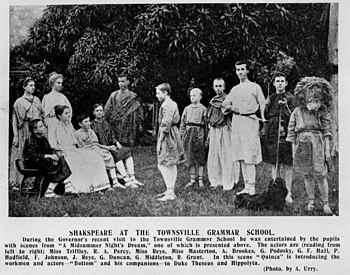
A Midsummer Night's Dream is a comedy play written by William Shakespeare in about 1595 or 1596. The play is set in Athens, and consists of several subplots that revolve around the marriage of Theseus and Hippolyta. One subplot involves a conflict among four Athenian lovers. Another follows a group of six amateur actors rehearsing the play which they are to perform before the wedding. Both groups find themselves in a forest inhabited by fairies who manipulate the humans and are engaged in their own domestic intrigue. The play is one of Shakespeare's most popular and is widely performed.
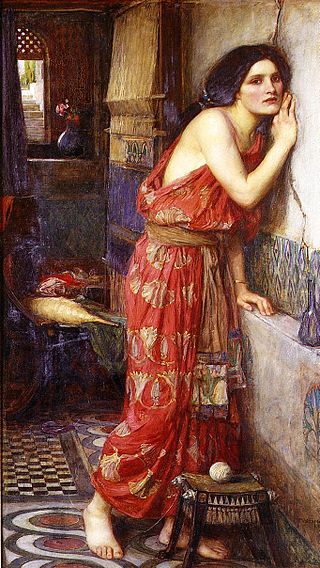
Pyramus and Thisbe are a pair of ill-fated lovers whose story forms part of Ovid's Metamorphoses. The story has since been retold by many authors.

The mechanicals are six characters in A Midsummer Night's Dream who perform the play-within-a-play Pyramus and Thisbe. They are a group of amateur and mostly incompetent actors from around Athens, looking to make names for themselves by having their production chosen among several acts as the courtly entertainment for the royal wedding party of Theseus and Hippolyta. The servant-spirit Puck describes them as "rude mechanicals" in Act III, Scene 2 of the play, in reference to their occupations as skilled manual laborers.
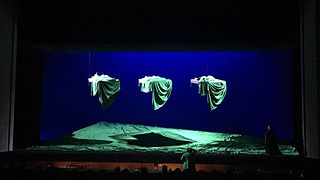
A Midsummer Night's Dream, Op. 64, is an opera with music by Benjamin Britten and set to a libretto adapted by the composer and Peter Pears from William Shakespeare's play, A Midsummer Night's Dream. It was premiered on 11 June 1960 at the Aldeburgh Festival, conducted by the composer and with set and costume designs by Carl Toms. Stylistically, the work is typical of Britten, with a highly individual sound-world – not strikingly dissonant or atonal, but replete with subtly atmospheric harmonies and tone painting. The role of Oberon was composed for the countertenor Alfred Deller. Atypically for Britten, the opera did not include a leading role for his partner Pears, who instead was given the comic drag role of Flute/Thisbe.
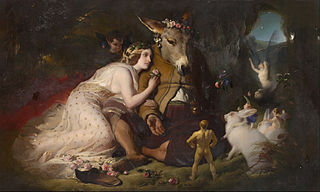
Nick Bottom is a character in Shakespeare's A Midsummer Night's Dream who provides comic relief throughout the play. A weaver by trade, he is famously known for getting his head transformed into that of a donkey by the elusive Puck. Bottom and Puck are the only two characters who converse with and progress the three central stories in the whole play. Puck is first introduced in the fairies' story and creates the drama of the lovers' story by messing up who loves whom, and places the donkey head on Bottom's in his story. Similarly, Bottom is performing in a play in his story intending it to be presented in the lovers' story, as well as interacting with Titania in the fairies' story.
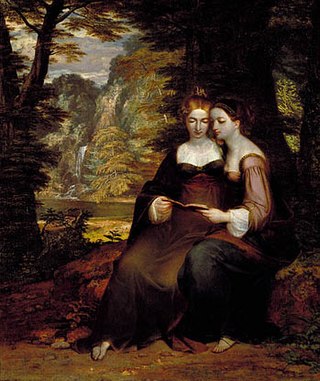
Helena is one of the four fictional young lovers – the others being Demetrius, Lysander, Hermia – featured in William Shakespeare's play A Midsummer Night's Dream.
Peter Quince is a character in William Shakespeare's A Midsummer Night's Dream. He is one of the six mechanicals of Athens who perform the play which Quince himself authored, "The Most Lamentable Comedy and Most Cruel Death of Pyramus and Thisbe" for the Duke Theseus and his wife Hippolyta at their wedding. Titania's Fairies also watch from a distance: Moth, Peaseblossom, Cobweb and Mustardseed. His name is derived from "quines" or "quoins", which are interlocked oversized corner blocks used by masons to add extra strength at corners and edges of stone walls.

Snug is a minor character from William Shakespeare's play A Midsummer Night's Dream. He is a joiner who comes from Athens who is hired by Peter Quince to play the part of the lion in Pyramus and Thisbe. When he is first assigned the part, he is afraid it may take him a while to finally remember his lines. Bottom offers to play the part of the lion, but he is rejected by Quince, who worries that his loud and ferocious roar in the play will frighten the ladies of power in the audience and get Quince and all his actors hanged. In the end, the lion's part is revised to explain that he is in fact not a lion and means the audience no harm.

Tom Snout is a character in William Shakespeare's A Midsummer Night's Dream. He is a tinker, and one of the "mechanicals" of Athens, amateur players in Pyramus and Thisbe, a play within the play.
Philostrate is a fictional character in a number of literary works, including William Shakespeare's A Midsummer Night's Dream (1596). In that play, he is the Master of the Revels at Theseus' court, meaning he is in charge of his lord's entertainments, making recommendations to Theseus, as well as altering the text of some of the plays performed in his court. Shakespeare may have used this character to poke fun at play censorship in London at the time. In early performances of the play, the actor who played this character probably also played the part of Egeus, Hermia's strict father. There is only one scene in act V where both Egeus and Philostrate are present, and in this scene Egeus' character would have taken all of Philostrate's lines as his own.

Francis Flute is a character in William Shakespeare's A Midsummer Night's Dream. His occupation is a bellows-mender. He is forced to play the female role of Thisbe in "Pyramus and Thisbe", a play-within-the-play which is performed for Theseus' marriage celebration.

A Midsummer Night's Dream is a 1968 British film of William Shakespeare's play A Midsummer Night's Dream, directed by Peter Hall.
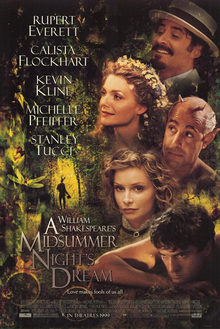
A Midsummer Night's Dream is a 1999 fantasy romantic comedy film written, directed and co-produced by Michael Hoffman, based on the 1600 play of the same name by William Shakespeare. The ensemble cast features Kevin Kline as Bottom, Michelle Pfeiffer and Rupert Everett as Titania and Oberon, Stanley Tucci as Puck, and Calista Flockhart, Anna Friel, Christian Bale, and Dominic West as the four lovers.
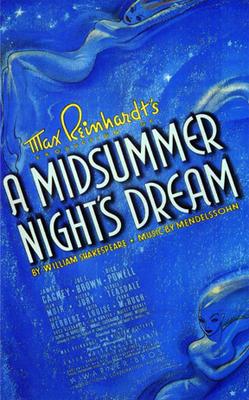
A Midsummer Night's Dream is a 1935 American romantic comedy fantasy film of William Shakespeare's play, directed by Max Reinhardt and William Dieterle, and starring James Cagney, Mickey Rooney, Olivia de Havilland, Jean Muir, Joe E. Brown, Dick Powell, Ross Alexander, Anita Louise, Victor Jory and Ian Hunter. Produced by Henry Blanke and Hal B. Wallis for Warner Brothers, and adapted by Charles Kenyon and Mary C. McCall Jr. from Reinhardt's Hollywood Bowl production of the previous year, the film is about the events surrounding the marriage of the Duke of Athens, Theseus, and the Queen of the Amazons, Hippolyta. These include the adventures of four young Athenian lovers and a group of six amateur actors, who are controlled and manipulated by the fairies who inhabit the forest in which most of the story is set. The play, which is categorized as a comedy, is one of Shakespeare's most popular works for the stage and is widely performed across the world. Felix Mendelssohn's music was extensively used, as re-orchestrated by Erich Wolfgang Korngold. The ballet sequences featuring the fairies were choreographed by Bronislava Nijinska.

A Midsummer Night's Dream is a 1909 American film directed by Charles Kent and J. Stuart Blackton, and starring Walter Ackerman and Charles Chapman. It was the first film adaptation of the eponymous play by William Shakespeare. The movie was made during summer 1909, but not released until December 25.
Pyramus and Thisbe is a "mock opera" by the German-born composer John Frederick Lampe on the story of Pyramus and Thisbe. It was first performed at Covent Garden Theatre, London, on 25 January 1745. The anonymous libretto is based on Richard Leveridge's The Comickal Masque of Pyramus and Thisbe (1716), itself inspired by the "play within a play" in act 5 of William Shakespeare's A Midsummer Night's Dream.

The 1970 Royal Shakespeare Company (RSC) production of A Midsummer Night's Dream was directed by Peter Brook, and is often known simply as Peter Brook'sDream. It opened in the Royal Shakespeare Theatre at Stratford-upon-Avon and then moved to the Aldwych Theatre in London's West End in 1971. It was taken on a world tour in 1972–1973. Brook's production of A Midsummer Night's Dream for the RSC is often described as one of the 20th century's most influential productions of Shakespeare, as it rejected many traditional ideas about the staging of classic drama.

Dream of a Summer Night is a 1983 Italian musical film written and directed by Gabriele Salvatores, at his directorial debut. Based on a rock musical directed by the same Salvatores, it is a musical adaptation of William Shakespeare's A Midsummer Night's Dream. It was screened in the "De Sica" section at the 40th edition of the Venice International Film Festival.

A Midsummer Night's Dream is a 2016 British television film based on the William Shakespeare play A Midsummer Night's Dream. It was adapted by Russell T Davies, directed by David Kerr and produced by Nikki Wilson. It stars Maxine Peake as Titania, Matt Lucas as Bottom, John Hannah as Theseus and Nonso Anozie as Oberon. The film was first broadcast on 30 May 2016 on BBC One.

A Caribbean Dream is a 2017 romantic comedy, produced by Melissa Simmonds and Lynette Eastmond, directed by Shakirah Bourne. The adaptation of William Shakespeare's A Midsummer Night's Dream was conceptualised and cast by Melissa Simmonds and written by Shakirah Bourne. The film stars Aden Gillett as Theseus, Sonia Williams as Hippolyta, Susannah Harker as Titania and Adrian Green as Oberon with Lorna Gayle as Bottom. There is an extensive cast of both English and Barbadian actors, this re-imagined traditional tale takes a twist under the full moon, as many wonders occur during this fated Caribbean Festival.
